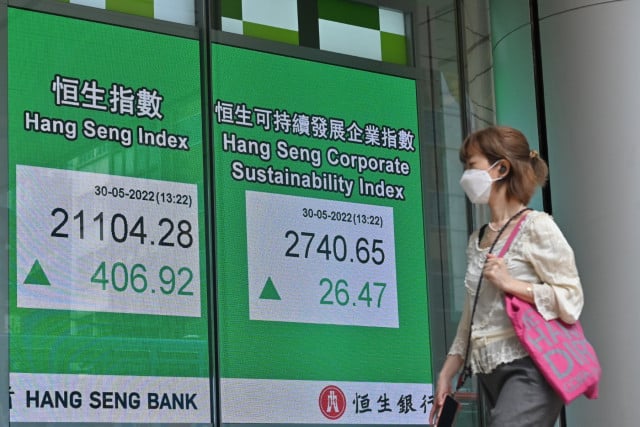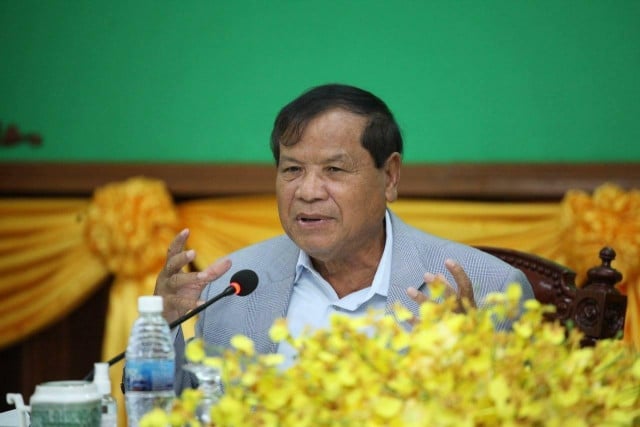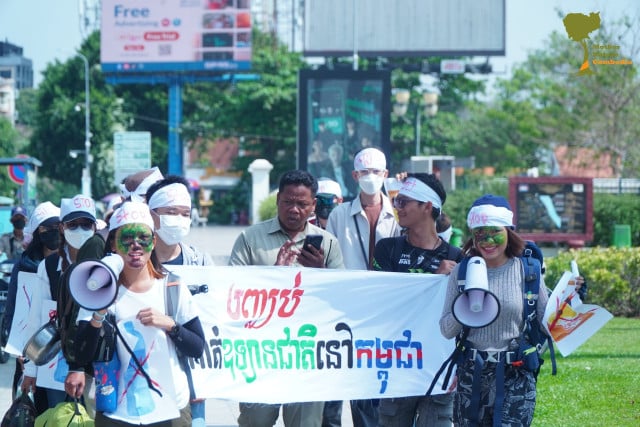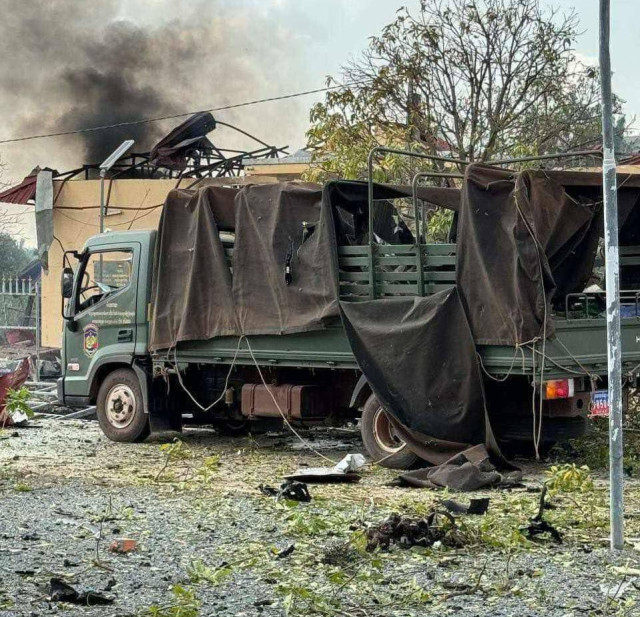Pchum Ben: No Food Wasted at Pagodas
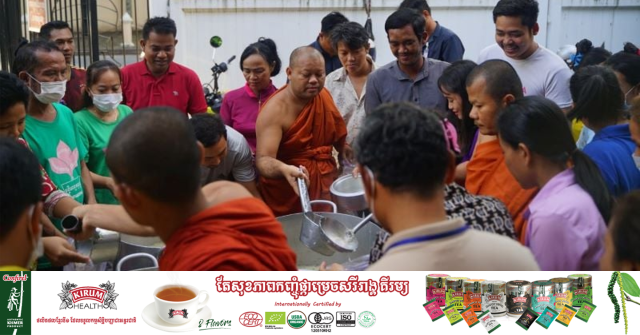
- By Meng Seavmey
- and Po Sakun
- October 14, 2023 3:00 PM
PHNOM PENH — Every day of the week, Buddhist monks in Phnom Penh and the provinces distribute the food that exceeds their needs to the poor, disadvantaged children, hospital patients and even prison inmates. The monks, with much or little food left, share with those with little or none.
In Svay Rieng province, Prak Thoeung, a pagoda committee member at Konsai Reach Pagoda, said the pagoda never leaves food get wasted after the lunch times as the committee arranges for the food left to be taken to the elder people or the children at the pagoda.
“After the monks have eaten, the elder people take the untouched food home,” he said. “There are also the poor who come here during lunchtime for food,” he said.
Located in a rural part of the province, there are not many people going to the pagoda on weekdays. “People mostly have the time [to bring] offerings during the weekends, so that’s when the food is more than enough for the monks,” Thoeung said.
Located in Kampong Speu province, Wat Choutanaram, known as Wat Thmey never lacks food because it is next to the road, said Lum Sarun, a pagoda committee member. “It’s a pity that the pagoda can’t allow the homeless to stay here, but we do give the food to them during lunchtime or after the food has been offered to the monks.
“Some people enjoy having their lunch at the pagoda after the monks’ lunchtime, so most of the food is also for them to eat together with other people,” he said. The untouched food is taken to the people, while the leftovers are for the dogs or cats at the pagodas and the Buddhists’ respective homes.
In Phnom Penh, Venerable Nhep Tat, secretary of Wat Ounalom, said that the pagoda used to give food to the Prey Sar prisoners. ´We usually gave food that keeps a long time such as stir-fried glass noodles or curry,” he said. However, the pagoda stopped doing so after COVID-19 due to the food shortage for the monks. “Not only our pagoda has had to do so but also other pagodas such as Wat Botum and Wat Srah Chak.
“There are still many Buddhists coming here, but the food has been reduced post-COVID-19,” Tat said. “Whether there will be some food left for giving to the prisoners again depends on how much the Buddhists offer to the pagoda.” The pagoda, nevertheless, manages to provide some food for the people at the Kantha Bopha Children's Hospital and the disadvantaged children who come to the pagoda to either beg for money or ask for food, he said.
Venerable Ket Navy, secretary of Wat Botum Vatey pagoda, said he distributed porridge to Kantha Bopha Children's Hospital during the 14 days of the festival.
There are 451 monks in the pagoda, and each shift has to cook 12 pots of porridge. Of these 12 pots, the pagoda will keep one for distribution to patients in hospitals and to the poor, he said.
“Each day, we can bring two pots of porridge to them,” Navy said. “One pot is the freshly-cooked porridge while the other pot is the leftover porridge from the monks. We always ask each shift to cook extra porridge so that we can take it to the needy.”
“However, during the Pchum Ben Days, more people come but some of the monks go to their respective hometowns,” he said. “So, there is more than enough food. In this case, we usually give to the poor or those who come to clean the pagoda.”
Venerable Inn Oun of Srah Chak Pagoda said the pagoda mostly gives the food to the disadvantaged children or the poor on the 15th day of the Pchum Ben celebration, as the pagoda could only manage enough food for the monks during the 14 Kan Ben days.
The pagoda used to take food every day to the Russian Hospital, Preah Ket Mealea Hospital, Kantha Bopha Hospital, the National Maternal and the Child Health Center as well as to prisons, Oun said.
However today, the pagoda can only do so when the monks receive enough food, he said. “After COVID-19, the food shortage occurred,” he said. “We only manage the food for the monks.”
“We give based on how much we have,” Oun said. “If we have more than enough for the monks, we will give to those who need, again.” He added that the pagoda even considered making fish porridge for the hospital in case the patients are allergic to pork.
There are many more pagodas across the country where monks share food with the needy every day.






